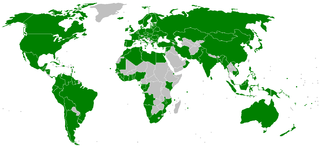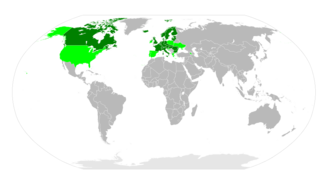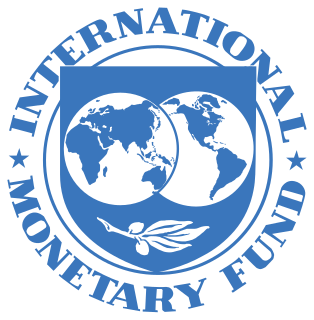
The International Convention for the Prevention of Pollution from Ships, 1973 as modified by the Protocol of 1978 is one of the most important international marine environmental conventions. It was developed by the International Maritime Organization in an effort to minimize pollution of the oceans and seas, including dumping, oil and air pollution. The objective of this convention is to preserve the marine environment in an attempt to completely eliminate pollution by oil and other harmful substances and to minimize accidental spillage of such substances.

The Oil Pollution Act of 1990 (OPA) was passed by the 101st United States Congress and signed by President George H. W. Bush. It works to avoid oil spills from vessels and facilities by enforcing removal of spilled oil and assigning liability for the cost of cleanup and damage, requires specific operating procedures; defines responsible parties and financial liability; implements processes for measuring damages; specifies damages for which violators are liable; and establishes a fund for damages, cleanup, and removal costs. This statute has resulted in instrumental changes in the oil production, transportation, and distribution industries.

The Anti-Social Behaviour Act 2003 (c.38) is an Act of the Parliament of the United Kingdom which almost entirely applies only to England and Wales. The Act, championed by then Home Secretary, David Blunkett, was passed in 2003. As well as strengthening the anti-social behaviour order and Fixed Penalty Notice provisions, and banning spray paint sales to people under the age of 16, it gives local councils the power to order the removal of graffiti from private property.
Anti-terrorism legislation are laws with the purpose of fighting terrorism. They usually, if not always, follow specific bombings or assassinations. Anti-terrorism legislation usually includes specific amendments allowing the state to bypass its own legislation when fighting terrorism-related crimes, under the grounds of necessity.

The Education Act 2005 is an Act of the Parliament of the United Kingdom. It was enacted in order to simplify the process of school improvement, strengthening the accountability framework for schools, in particular by amending the approach used by Ofsted when inspecting schools in England. This Act repealed the provisions of the School Inspections Act 1996.

The Act to Prevent Pollution from Ships is a United States law that implements the provisions of MARPOL and the annexes to which the United States is a party. The most recent U.S. action concerning MARPOL occurred in April 2006, when the U.S. Senate approved Annex VI, which regulates air pollution. Following that approval, in March 2007, the House of Representatives approved legislation to implement the standards in Annex VI, through regulations to be promulgated by Environmental Protection Agency in consultation with the U.S. Coast Guard.
To protect the environment from the adverse effects of pollution, many nations worldwide have enacted legislation to regulate various types of pollution as well as to mitigate the adverse effects of pollution.

The Aarhus Protocol on Persistent Organic Pollutants, a 1998 protocol on persistent organic pollutants (POPs), is an addition to the 1979 Geneva Convention on Long-Range Transboundary Air Pollution (LRTAP). The Protocol seeks "to control, reduce or eliminate discharge, emissions and losses of persistent organic pollutants" in Europe, some former Soviet Union countries, and the United States, in order to reduce their transboundary fluxes so as to protect human health and the environment from adverse effects.
The International Convention on Civil Liability for Oil Pollution Damage, 1969, renewed in 1992 and often referred to as the CLC Convention, is an international maritime treaty admistered by the International Maritime Organization that was adopted to ensure that adequate compensation would be available where oil pollution damage was caused by maritime casualties involving oil tankers.

The Geneva Conventions and United Nations Personnel (Protocols) Act 2009 is an Act of the Parliament of the United Kingdom. It was enacted to give effect to the Third Additional Protocol to the Geneva Conventions and to the Optional Protocol to the Convention on the Safety of United Nations and Associated Personnel.

The Prince Edward Islands Act, 1948 is an act of the Parliament of South Africa that annexed the Prince Edward Islands to the Union of South Africa. The South African flag was hoisted on Marion Island and Prince Edward Island on 29 December 1947 and 4 January 1948 respectively, and a proclamation of annexation was promulgated on 24 January 1948. The annexation was confirmed by Parliament by the Prince Edward Islands Act, which was signed by the Governor-General on 1 October 1948 and came into force upon publication on 7 October.

The Directorate General of Shipping, India is an attached office under the Ministry of Shipping, Government of India, responsible for life, health, vessel and the environment for Indian registered ships and ships at Indian ports. The directorate, is located in Mumbai and led by Director General of Shipping Dr. Malini Shankar, IAS and Additional Director General of Shipping Mr Amitabh Kumar, IRS.

The Oil Pollution Act of 1973 or Oil Pollution Act Amendments of 1973, 33 U.S.C. Chapter 20 §§ 1001-1011, was a United States federal law which amended the United States Statute 75 Stat. 402. The Act of Congress sustained the United States commitment to control the discharge of fossil fuel pollutants from nautical vessels and to acknowledge the embargo of coastal zones in trans-boundary waters.

Environment Protection Act,1986 19 Nov and 26 sections is an Act of the Parliament of India. In the wake of the Bhopal Tragedy, the Government of India enacted the Environment Protection Act of 1986 under Article 253 of the Constitution. Passed in March 1986, it came into force on 19 November 1986.It has 26 sections.The purpose of the Act is to implement the decisions of the United Nations Conference on the Human Environment. They relate to the protection and improvement of the human environment and the prevention of hazards to human beings, other living creatures, plants and property. The Act is an “umbrella” legislation designed to provide a framework for central government coordination of the activities of various central and state authorities established under previous laws, such as the Water Act and the Air Act.

The Treaties of the European Union are a set of international treaties between the European Union (EU) member states which sets out the EU's constitutional basis. They establish the various EU institutions together with their remit, procedures and objectives. The EU can only act within the competences granted to it through these treaties and amendment to the treaties requires the agreement and ratification of every single signatory.

Private International Law Act 1995 is an Act of the Parliament of the United Kingdom.












